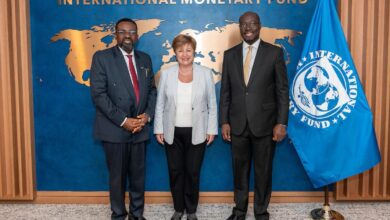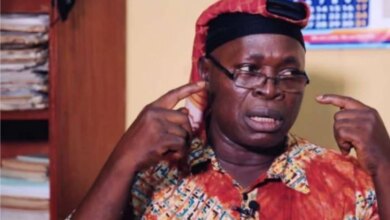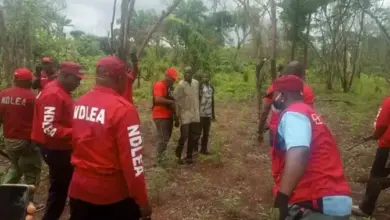Volta Region Unveils Bold Economic Blueprint: EXIMBANK CEO commits grants and long-Term capital for agricultural transformation
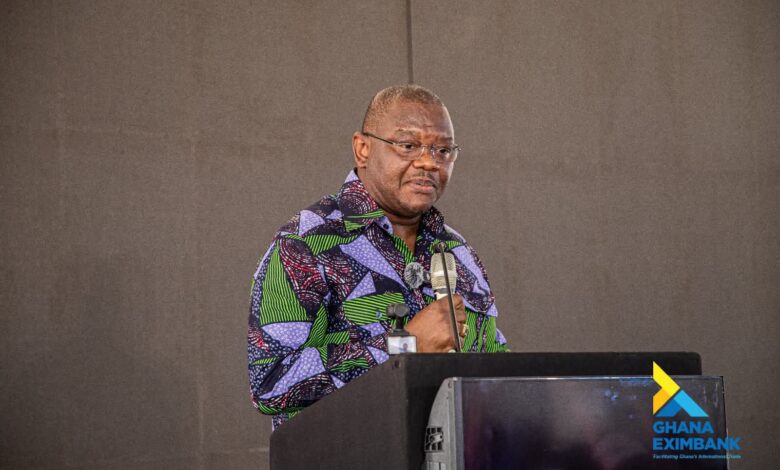
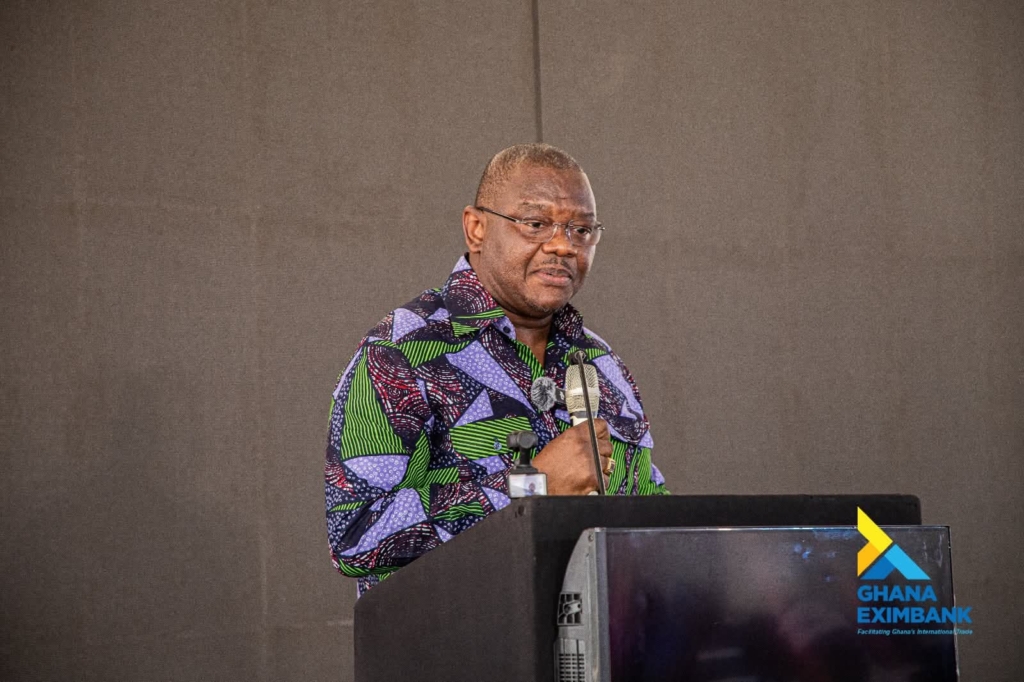
The Volta Region has unveiled an ambitious economic transformation agenda backed by concrete financial commitments from the Ghana Export-Import Bank (GEXIM), positioning the area as a critical growth corridor in Ghana’s drive toward industrialisation and export competitiveness.
In a detailed economic prospects document presented at the Volta Economic Forum 2025, Sylvester Adinam Mensah, Chief Executive Officer of GEXIM, outlined a comprehensive investment framework addressing longstanding structural challenges while capitalising on the region’s natural advantages in agriculture, tourism, renewable energy, and cross-border trade.
Population Growth and Economic Imperatives
With a current population estimated at 1.8 million—projected to reach 2.1 million by 2030—the Volta Region faces mounting pressure to create sustainable employment, particularly for its youth and women.
The Ewe people constitute 68.5% of the population, followed by Guan (9.2%) and Akan (8.5%) communities.
Strategically located—bordering Togo to the east, the Atlantic Ocean to the south, and the Lake Volta basin to the west—the region forms what officials describe as a natural economic corridor within the ECOWAS zone.
The Rice Paradox: Second-Largest Producer, Yet Struggling
Despite being Ghana’s second-largest rice producer—accounting for 29.63% of the nation’s rice-planted areas in 2020 and producing 564,815 metric tonnes between 2020 and 2022—the Volta Region’s rice industry continues to face serious structural constraints.
Hon. Mensah’s report reveals that nearly one-third of the Weta Irrigation Project in Ketu North Municipal has been submerged since 2006, resulting in millions of cedis in annual losses for farmers.
Studies cited in the document show that farmers using irrigation facilities operate at more cost-efficient levels compared to those relying solely on rainfall. However, the region continues to suffer from inadequate storage facilities, insufficient mechanical dryers, and limited modern milling capacity—causing high post-harvest losses and declining grain quality.
EXIMBANK’s Game-Changing Intervention
In response, the Ghana Export-Import Bank under Hon. Mensah’s leadership has committed to deploying what he calls “patient capital”—long-term investment funding in the form of grants for projects that require time to achieve profitability while delivering social and economic impact.
The Bank’s intervention package includes:
Agricultural Infrastructure Recovery:
Grants to reclaim flooded irrigable lands for rice cultivation.
Financing for land development and modern irrigation systems to ensure year-round production of rice, vegetables, and maize.
Establishment of storage facilities with dryers in major rice-growing areas.
Provision of improved rice processing equipment across production zones.
Working Capital and Capacity Building:
Specialised funding for vegetable, maize, and rice producers.
Working capital support for aquaculture and fisheries enterprises.
Comprehensive training for farmers, agro-processors, and exporters in climate-smart production, agronomic practices, food safety, packaging, and export standards.
The economic blueprint identifies five additional investment sectors beyond agriculture:
Tourism and Creative Economy:
With world-class natural attractions—Wli Waterfalls, Mount Afadjato, Tafi Atome Monkey Sanctuary, Keta Lagoon, and Fort Prinzenstein—EXIMBANK has committed to financing eco-lodges, cultural heritage sites, and lake-based tourism ventures to enhance job creation and promote sustainable tourism.
Renewable Energy:
Leveraging the region’s abundant sunlight, wind corridors, and hydro potential, GEXIM’s green finance framework will fund solar and small hydro projects to power communities and catalyse industrial growth.
Trade and Logistics Hub:
Strategically positioned along the ECOWAS highway, the region is set to become Ghana’s eastern trade and logistics hub through the Volta Economic Corridor Project, which will include inland ports, industrial estates, and border infrastructure.
Human Capital Development: The UHAS Success Story
Hon. Mensah highlighted the University of Health and Allied Sciences (UHAS)—established in 2011 under President John Evans Atta Mills—as a model of successful human capital investment.
UHAS now graduates over 2,000 students annually in medicine, nursing, pharmacy, and allied sciences, and employs more than 600 staff, creating a strong local economic multiplier effect through housing, hospitality, retail, and transport.
The blueprint builds on this foundation with expanded TVET, apprenticeship, and entrepreneurship programs to prepare youth for opportunities in agro-processing, logistics, renewable energy, and tourism.
Digital Transformation as Economic Driver
Acknowledging that no region can achieve rapid growth without technology, the plan prioritises building a digital innovation ecosystem with ICT hubs, tech start-up support, and rural internet access.
Under Mensah’s leadership, EXIMBANK will finance digital enterprises and agritech start-ups, enabling the adoption of smart irrigation, drone mapping, digital payments, and precision farming.
Confronting Recent Setbacks
The report also addresses recent challenges, including the temporary suspension of African World Airlines (AWA) and the closure of retail outlets like KFC in the region.
“These moments reveal a deeper need for creating a more diversified, self-sustaining economic base,” the document states. “Strengthening local industries, improving infrastructure, and building human capital will ensure that the region remains open, competitive, and attractive to investors.”
EXIMBANK’s Expanded Mandate
Established in 2016 under President John Dramani Mahama, the Ghana Export-Import Bank was created to support Ghana’s export-led industrialisation agenda.
Speaking on the Bank’s mandate, Hon. Mensah said:
“GEXIM was created precisely to support the Government of Ghana’s vision of building a resilient and export-led economy. The Bank’s mission is to facilitate Ghana’s economic transformation through the promotion of international trade, strategic investments abroad by Ghanaian enterprises, and by addressing critical market failures that limit the country’s global competitiveness.”
Beyond grants and working capital, EXIMBANK’s framework includes:
Financing feasibility and technical studies for investment readiness.
Facilitating public-private partnerships for infrastructure and value-chain solutions.
Supporting export-oriented enterprises through financing, capacity building, and trade facilitation.
Integrating the Volta Region into national and regional digital economies.
A Partnership-Driven Vision
Hon. Mensah underscored that realising the region’s full potential demands “deliberate policy interventions, targeted investments, and effective partnerships between the public and private sectors to drive sustainable and inclusive growth.”
“Ghana Export-Import Bank stands ready to support by financing value-added enterprises and promoting projects that can convert the region’s natural advantages into strong business opportunities that can compete internationally and drive export growth,” he affirmed.
From Potential to Reality
The Volta Region’s economic blueprint goes beyond aspiration—it marks the beginning of tangible action. With EXIMBANK’s financial commitments, including grants to reclaim submerged farmland and establish modern agricultural infrastructure, the region is shifting from identifying opportunities to implementing solutions.
For investors attending the Volta Economic Forum 2025, Hon. Mensah’s message is clear: the Volta Region is not merely seeking investment—it is creating the right conditions for it through deliberate public-sector reforms that de-risk private capital.
As Ghana advances its 24-Hour Economy agenda, the Volta Region—supported by its natural resources, growing population, strong institutions like UHAS, and now EXIMBANK’s strategic funding—stands poised to become a new economic powerhouse.
The question is no longer whether the Volta Region has potential. With Hon. Sylvester Adinam Mensah and the Ghana Export-Import Bank putting real money behind bold ideas, the question is which investors will move first to seize the opportunity.
DISCLAIMER: The Views, Comments, Opinions, Contributions and Statements made by Readers and Contributors on this platform do not necessarily represent the views or policy of Multimedia Group Limited.
DISCLAIMER: The Views, Comments, Opinions, Contributions and Statements made by Readers and Contributors on this platform do not necessarily represent the views or policy of Multimedia Group Limited.
Source link

